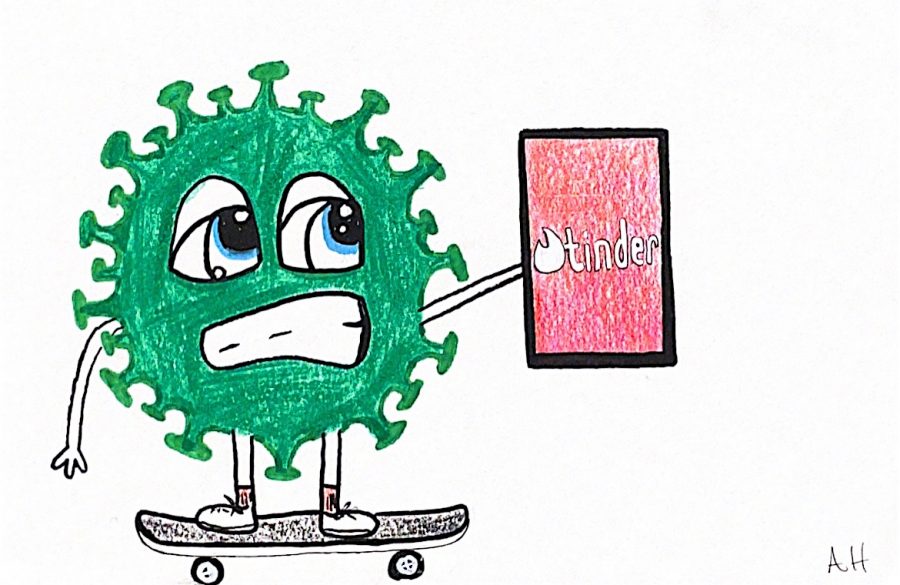Finding intimacy after a year of disconnection
October 7, 2021
If you found love during the pandemic, I’m happy for you, but please block me on social media.
Giving up on love seemed acceptable in the midst of a pandemic. On top of restricted interactions and events that could, in theory, lead to love connections, there was a general sense of apathy towards dating.
The stress of existing as a student during a pandemic was enough without worrying about getting a text back.
With limited in-person events, many people turned to the only thing the pandemic couldn’t ruin: the internet. More specifically, dating apps.
Apps like Tinder and Bumble saw huge surges in use. Tinder reached 3 billion swipes in a single day in March 2020, according to a March 15 Vox article.
I think it’s brave to try to find love by any means, however, dating apps minimize human identity through the reductive basis of an internet persona.
Forcing a 3D person into 2D is the reason so many of us struggle to see the real people on the other end of our phones.
Dating apps can also negatively impact mental health. It’s essentially another social media app that can make you feel less desirable, less loveable and exposes you to high levels of rejection you wouldn’t normally experience, said Jenna Emerson, UVM’s health and sexuality educator.
The pandemic cut levels of human interaction and this shared experience of isolation and lack of connection made people reconsider how they saw the world of dating.
I remember thinking, while Tinder isn’t my favorite thing, I’m more likely to meet someone I would connect with there than in an online class.
You could still find momentary comfort with someone new. But it was also hollowing.
Hookup culture does not fulfil our need for connection. There’s a terrible feeling in realizing you have nothing in common with the person you were just extremely intimate with.
“Ultimately as humans we are just looking for love and belonging, with hook-up culture there’s so much turnover, for lack of a better word, the connection is harder to establish,” Emerson said.
Hooking up is also usually worse for everyone involved. There’s less communication, people are less comfortable and as a result, it’s harder to meet everyone’s needs.
“When you only meet someone one time, you don’t know each other that well, it can make it difficult to have a good experience,” sophomore Mariel Egan said.
Additionally, society doesn’t judge those who participate in hookup culture equally.
The double standards surrounding hookup culture allows a masculine person to boast to be weaponized against femmes. Stereotypes about LGBTQ+ people may be reinforced while the same actions from their straight counterparts elicit praise.
The world is, slowly, exiting the pandemic. We are all excited to go to concerts and parties again, it’s time for us to be excited about dating too. That means allowing time for connections to grow and not rushing into physical closeness to fill the intimacy void.
The other day, I kissed someone with only the intent to kiss them for the first time in probably a year and a half. It wasn’t the best kiss I’ve ever had, but it was a more special moment than any I had shared with a romantic interest in a while.
We talked about families and favorites and when the right point in the night came, without any pressure to escalate the situation or ulterior motives, we shared a nice moment.
The instant gratification of hookup culture might linger for a while longer, tempting us to invite over someone from Tinder to watch a movie at 11 p.m., but there’s so much more out there. Try making an emotional connection with someone, it’s really hot.
The new normal will be hard to navigate, many things still feel broken or awkward, but dating doesn’t have to be one.
